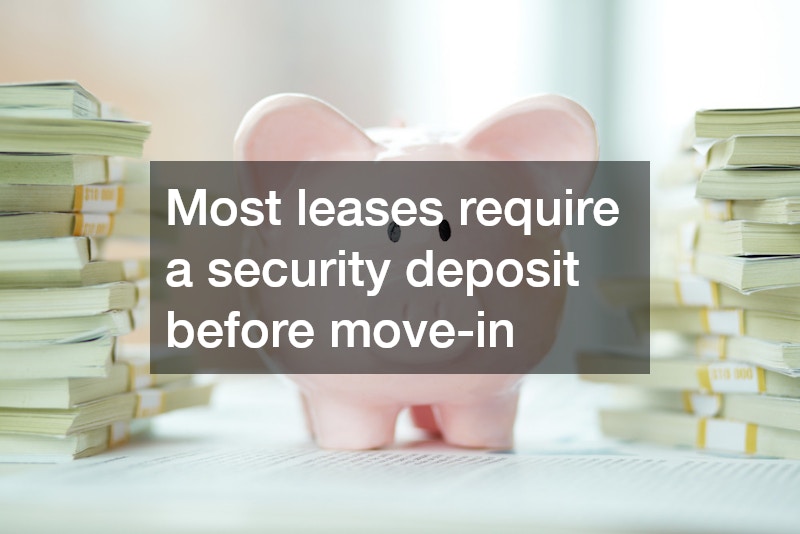Signing a lease is one of the most important steps in renting a place, especially if you’ve recently found one of those perfect new apartments you’ve been dreaming about. While it’s tempting to skim through the paperwork so you can move in faster, understanding the terms of your lease is essential for protecting your rights and avoiding costly surprises later. This guide will walk you through what to look for, what each section means, and how to feel confident before you sign.
Start With the Basics
When you first get your lease, check the basic information: your name, the landlord or property manager’s name, the address of the unit, and the lease term. For those renting new apartments, make sure the lease accurately reflects the specific unit and any features promised during your tour—like included appliances, parking spots, or storage areas. Mistakes here can cause confusion later, so it’s worth verifying every detail.
Understand the Lease Term and Renewal Policy
Your lease term will outline how long you’re agreeing to rent the apartment—often 12 months, though some new apartments offer shorter or longer options. Look for information on how the lease will renew when it ends. Some leases automatically renew unless you give notice, while others require both you and the landlord to agree on an extension. Knowing this helps you plan ahead, especially if you might be moving in the near future.
Review the Rent and Payment Details
This section of your lease covers how much rent you’ll pay, when it’s due, and how payments should be made. If you’re renting one of the more upscale new apartments, this section might also outline additional charges, like fees for premium amenities or assigned parking. Pay close attention to any late payment penalties, as these can add up quickly.
Look at What’s Included (and What’s Not)
Some new apartments come with utilities included in the rent, while others require tenants to set up and pay for services like electricity, gas, water, and internet. The lease should clearly state which utilities are covered and which ones are your responsibility. This is important for budgeting and avoiding unexpected monthly expenses.
Understand Security Deposits and Fees
Most leases require a security deposit before move-in. This money is typically refundable if you leave the apartment in good condition. However, the lease should outline exactly what counts as “good condition” and what might cause deductions. For new apartments, you might also see charges for key fobs, access cards, or amenity fees. Make sure you understand what’s refundable and what isn’t.
Pay Attention to Maintenance Responsibilities
Your lease should explain who is responsible for repairs and maintenance. While landlords generally handle major issues, you might be responsible for smaller upkeep tasks like changing light bulbs or air filters. If you’re renting new apartments, ask if there’s a warranty period for certain appliances or fixtures, and make sure the lease includes how to request repairs.
Know the Rules on Guests and Subleasing
Many leases have specific rules about how long guests can stay or whether you can sublet your unit. If you plan to have friends or family visit often, make sure you know the limits. For new apartments in larger communities, there may also be security measures like guest registration or parking permits.
Understand Pet Policies
If you have a pet—or plan to get one—look for a section outlining pet rules, deposits, and fees. Some new apartments are pet-friendly and include amenities like dog parks or pet washing stations, but others may have breed or weight restrictions. Always get pet policies in writing to avoid conflicts later.
Check for Early Termination Clauses
Life can change unexpectedly, and it’s important to know your options if you need to break your lease early. Some leases allow early termination with a penalty, while others may hold you responsible for rent until a new tenant is found. For renters in new apartments, this is especially important if you’re unsure how long you’ll stay in the area.
Ask Questions Before You Sign
If anything in the lease is unclear, don’t hesitate to ask questions. A good landlord or property manager will be happy to explain terms or make clarifications in writing. Remember, once you sign, you’re legally bound to the terms—so make sure you’re comfortable with every detail.
Reading and understanding your lease may not be the most exciting part of renting, but it’s one of the most important. Whether you’re moving into one of the sleek new apartments in your city or a cozy space in a quieter neighborhood, knowing exactly what you’re agreeing to will protect your rights, your budget, and your peace of mind. Take the time to go through each section carefully, ask questions, and get everything in writing. With a clear understanding of your lease, you’ll be ready to enjoy your new home with confidence.







